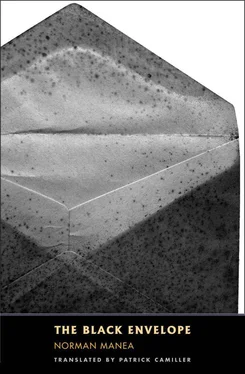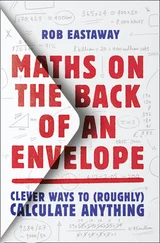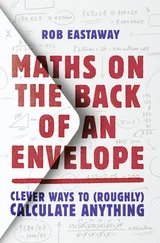And so passed a century of peace and oblivion, until the windows shook again and Tolea woke up scared at the vibration of the walls, as in another earthquake.
It was only a truck or a tank or a tractor, perhaps, rattling down the street that was just then waking up. Dawn had come — the petrified cage as indifferent as ever. Nothing was moving: it was as if nothing had happened.
He got up, looked around at the strange room, looked at the window and the unfamiliar street, then dragged his scattered clothes from the carpet and put them on.
The hostess was asleep. Naked, perfect — perfect sleep. Now he saw her in reality. Broad hips, narrow waist, sturdy calves, smooth sole, slim ankle, pale elongated face, lips twisted in an evil smile, short red hair of a setter, white, overlong arms. She did not move, did not hear a thing. He took a first step. The corpse remained the same, immobile, perfect.
Her sleep was too perfect to demonstrate indifference, innocence. Did the courtesan not have something to hide; that is, some reason to be on the alert? Perhaps her haste to search the stranger’s pockets, to discover his identity, address, distinctive details, had after all been only a harmless impertinence or an excess of curiosity and even friendliness, nothing else. A cosmic, total sleep, as if nothing suspicious could be discovered in the Mata Hari boudoir. All around and on the floor, books, clothes, tableware were lying in a heap as the earthquake had flung them.
He leafed through a few books on the carpet, opened drawers, paper files, albums, and cupboards to unearth the weapon of the officer in disguise or her secret identity papers. He kept turning to make sure that the nude was in the same position, anaesthetized in the same indecent, intangible slumber. He looked among brass and nylons and photographs, among towels, cosmetics, and shoes. How could the captain allow herself to sleep while a stranger was rummaging through wigs, slips, panties, and tights. Had the earthquake been so high on the Richter scale that it had confounded police regulations, granting her indefinite leave for this implausible, indefinite sleep?
No, he did not find the props of disguise, or the revolver or uniform or secret orders and reports. But he knew that the futility of the search lay in its own premises: the results did not mean anything. The lack of proofs only showed how abundant they were, and the falsified evidence was more convincing than if it had been real. No, not even her sleep, as greedy and imprudent as the loveplay had been urgent, famished, and reckless, absolved the mannequin of the suspicion of which no one these days had a right to be absolved.
He listened for a moment longer before leaving. Nothing — not a flicker. He wearily left the resuscitation balloon. He stood clinging to the door. Gray-blue dawn. The daylight had scarcely broken through: night was still sarcastically dawdling over the damaged city. Scarcely able to make out the stairs, he lit a match to guide himself down. But then he turned back to read the name on the recessed door. It was engraved on a little bronze plaque: francisca pop. The match went out and he lit another. francisca pop. ballerina was written clearly on the door to the trap. He read it, read it again, memorized it, read it once more. “Irina, how about that! The Red Hole. The Irish mouth! The Irish setter, huh! The Cannibal, or witch! Witch Francisca Pop d’Assisi! Irish — huh! What a con merchant!” The wanderer was still mumbling on the last stair before he went out into the street, into reality.
“Irina, how about that! Irina of Hymenland!” he said, stressing the words, refreshed by the cool of the unreal morning. “A ballerina, huh! Ballerina Mata Hari!” the pedestrian repeated to warm himself up.
After just an hour it would no longer be possible to find the green-painted staircase and that block of flats and the fir-lined drive and the name Francisca Pop — of that he was convinced. They would have scattered without trace in the dark labyrinth of the beehive, which would conscientiously begin again its static daily grind. Scattered himself, too. In a hurry to be scattered without trace as fast as possible. In the night that was being scattered, in the dawn that was freezing and scattering him.
He went forward in the gray hour, the hour when aggression is imminent.
He could already feel the epileptic shudder, the encirclement without escape.
Night, emptiness. Nearby can be heard the cranes working beneath jets of reflector light at the white palace of the future, the headquarters of the exemplary deaf-mute circus where the Exemplary President of the Exemplary Association will sit on the throne! The street is wearily grating under the caterpillar tracks of the night’s transport. The loads are marble walls, conduits, barrels of fuel oil, concrete slabs, gilded door handles, and taps for the boudoir of the generals, the exemplary watchers of the exemplary watched. The sky is being torn to pieces by the fire serpents with their soldering operations.
Clear black sky, few stars, no moon: in vain would you look in the sky for someone to talk to.
A few times he seemed to feel the obsessive shadow of someone watching him. Past midnight. The hour of nightmares, the hour of Toma.
“People are capable of anything, hunter Toma A. Toma. You might quote this banality in the reports you file in the Archives of Suspicion. The prisoners hardly have time to understand the brief trajectory that is allowed them. They can hardly evaluate the deformed specimen called man. Who better than you to know their failings and their helplessness? But Vancea? What can one think of me, the ephemerid Vancea, the ex-teacher Vancea?”
He would smile, happy with the dialogue. His knowing, conceited, artful smile.
Tolea the sleepwalker felt that he was no longer alone in his room.
“You don’t interest me, Mr. Vancea, I told you. I asked you about Ianuli, about our old obsession Ianuli.”
“I don’t know him. I don’t know Ianuli, as I’ve said time and time again. I never had the opportunity: I don’t want to, and there’s no need for it either. No, I don’t know Ianuli. I don’t have any opinion about him. None at all.”
He had pressed his head in his hands, so he wouldn’t hear the sound of himself thinking, so he could remain alone with the darkness. But after a long while he looked up again. Something very strange was shining in the dark, like a gold tooth in an invisible mouth or a bleeding scar on a ghost’s temple. And silence fell, after the avalanche of unuttered words. The windows were gradually dissolving in the bluishness of dawn.
“Do you really not know Ianuli at all — not at all? Or his wife? Or his wife, who has worked with us for so …” And someone made a chivalrous gesture, an act of reverence in the face of the priceless memory.
“Ianuli, Ianuli. I’ve seen him a few times. I’ve caught sight of him, I mean, in the street, at the theater, I don’t remember where else. But I don’t know him in fact. All I know is what everyone knows: the Ianuli legend. A young bookworm fascinated by revolution who leaves his family and goes off to fight in the mountains; he’s wounded, leaves his age-old Greece, and soon after the war comes here, to the gates of the Orient. He’s very ill nowadays, that’s what I’ve heard. I happened to see him a year or so ago in the street. He was pale, all skin and bones, with disheveled hair. A real ghost! No, I don’t know him. But Emilia— Well, Emilia …”
Nonsense. Rambling words that should not have been said or even thought. Maybe our thoughts can be intercepted, maybe the technology has been developed. Does the exemplary institution already have such an invisible instrument at its disposal? We shouldn’t always be asking ourselves who the devil is. You shouldn’t talk nonsense. That’s just what spies are looking for.
Читать дальше












